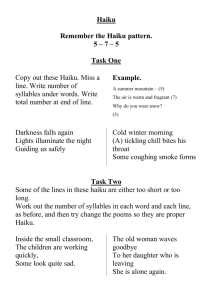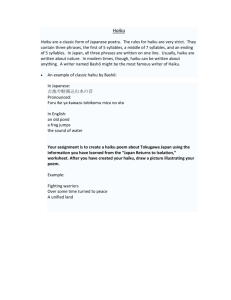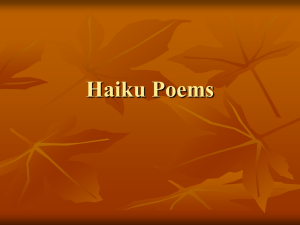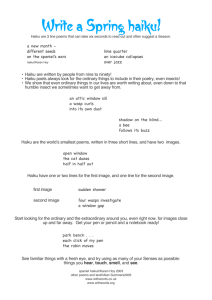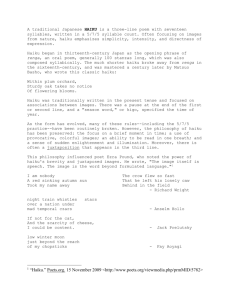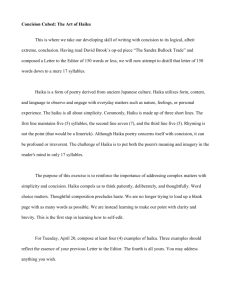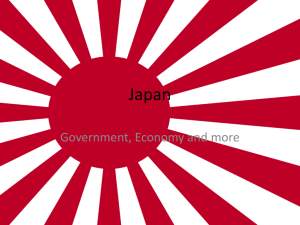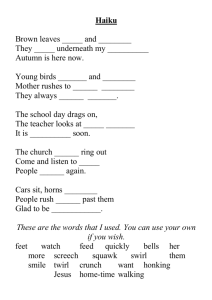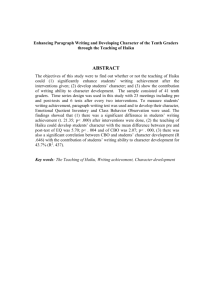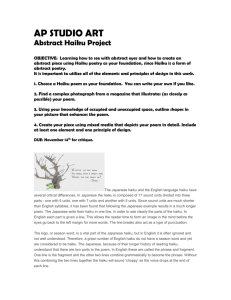Haiku
advertisement
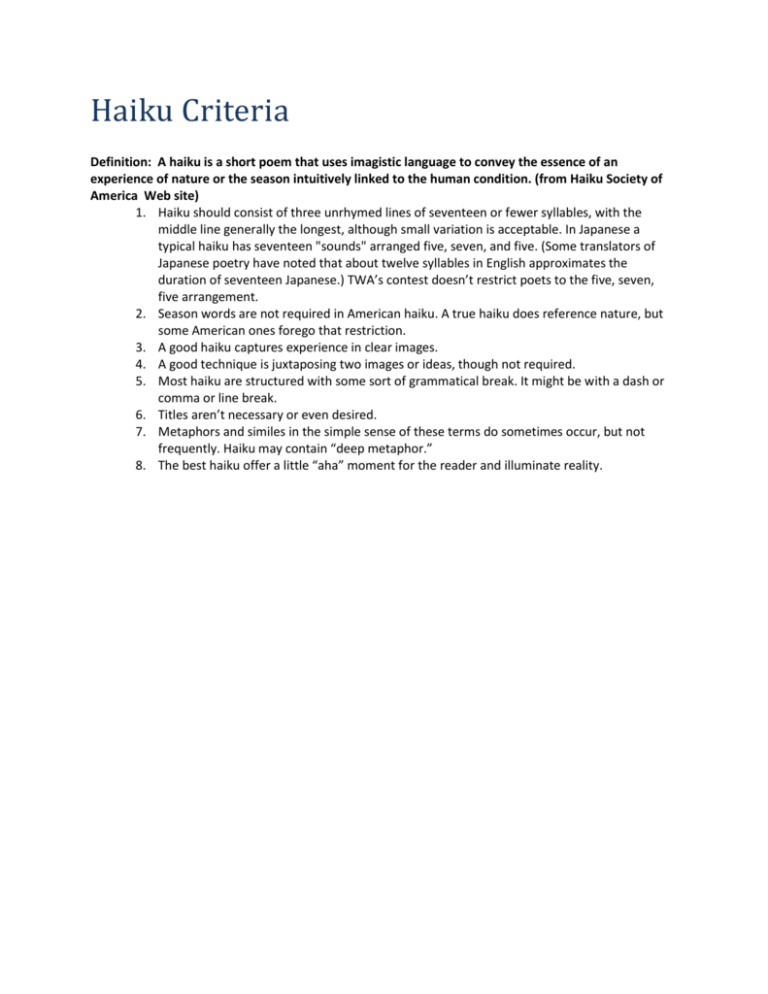
Haiku Criteria Definition: A haiku is a short poem that uses imagistic language to convey the essence of an experience of nature or the season intuitively linked to the human condition. (from Haiku Society of America Web site) 1. Haiku should consist of three unrhymed lines of seventeen or fewer syllables, with the middle line generally the longest, although small variation is acceptable. In Japanese a typical haiku has seventeen "sounds" arranged five, seven, and five. (Some translators of Japanese poetry have noted that about twelve syllables in English approximates the duration of seventeen Japanese.) TWA’s contest doesn’t restrict poets to the five, seven, five arrangement. 2. Season words are not required in American haiku. A true haiku does reference nature, but some American ones forego that restriction. 3. A good haiku captures experience in clear images. 4. A good technique is juxtaposing two images or ideas, though not required. 5. Most haiku are structured with some sort of grammatical break. It might be with a dash or comma or line break. 6. Titles aren’t necessary or even desired. 7. Metaphors and similes in the simple sense of these terms do sometimes occur, but not frequently. Haiku may contain “deep metaphor.” 8. The best haiku offer a little “aha” moment for the reader and illuminate reality.
